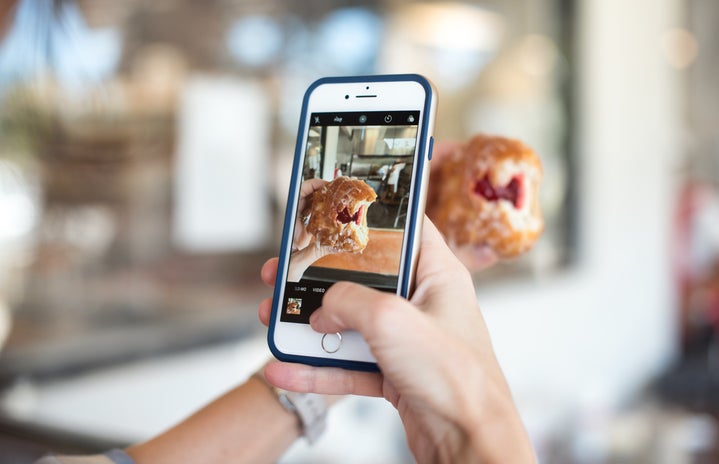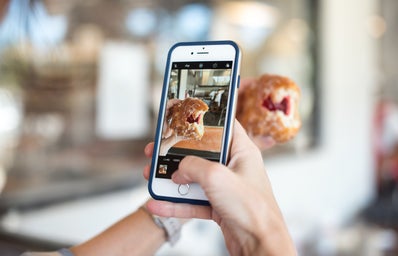The premise of this article emerged—as most conflicts in our day-and-age do—from Instagram. Several weeks ago, I was sprawled on my bed and exercising my thumbs by scrolling by watching IG stories. All of a sudden, the screen transitioned to updates from a wellness blogger/influencer I’ve been follow for a few years. The influencer opened the video by lamenting “Guys, I have no food in fridge!” and proceeded to flip the camera and scan the contents of her refrigerator door storage. Far from a wasteland, however, her shelves were stocked with upwards of five different kinds of nut butter, various “healthified” dressings and dips, hummus jars, …the list goes on. And while I’ll admit that those items are far from the makings of a hearty meal, despite the influencer’s was far from empty. I watched this seconds-long clip over and over again, showed it to friends, and generally tried to make sense of it all before I finally reached a conclusion: The wellness industry has a privilege problem, and we need to talk about it.
I say the above as if it came to me as a revelation, but in truth it’s something myself and others have been thinking about for some time. A few years ago, I followed over 100 wellness influencers on Instagram—I took screenshots of their healthy recipes, coveted their fancy workout gear, and bookmarked their favorite workouts. As I soon realized, however, the wellness explosion has zero trickle-down effect. As I got older and became more aware of the cost of something like a Whole Foods grocery haul or boutique fitness class, the impression I got from following these influencers started to feel increasingly out of touch. In other words, when I see posts that encourage “self-care” and “taking time for yourself” in the form of holistic spa treatments worth upwards of several hundred dollars I don’t feel inspired, I feel frustrated.
There’s a laundry list of issues that come with the way wellness influencers present their lifestyles on social media, perhaps the most problematic being the idea that being healthy is a choice. I cannot tell you how many Instagram captions and blog posts I’ve read about how the secret to living a more balanced lifestyle is all about priorities. In truth, however, this is simply not the reality for individuals who are not upper-middle class and living in a major metropolitan center—in other words, anyone outside the wellness industry’s main demographic. For individuals on a tight food budget, the cheapest options in the grocery aisles are often the most processed, and when you’re strapped for cash you’ll be thinking more about feeding your family that the grams of saturated fat in your dressing. By ignoring this and other realities—think food deserts, racial disparity, and more—wellness influencers are perpetuating a culture of shame around what we eat, how we cook, and where we buy our food. In a national climate that is becoming increasingly divided each day, the last thing we need are negative feelings about what we put on our plate.
Now, all of that off my chest, I should probably clarify that I understand that these influencers 1) receive a lot of their food, clothes, classes etc. for free or discounted prices and that 2) even when they don’t, these are the amenities that they financially prioritize. It’s not my place to say that these individuals are irresponsible or disrespectful because of the lifestyle they choose to portray on social media. With that said, I do wish we saw more income diversity in the wellness sphere and, if anything, more open discussions about how hard it can be to afford even the basics– fresh fruits and vegetables to start with—when you’re not an upper-middle class white woman in New York or Los Angeles.
This article isn’t a call to boycott wellness influencers, but rather a call to awareness about the fact that—even in the world of “oms” and “Namaste”—we need to continue to check our privilege. If anything, I wrote all of this because I feel that wellness influencers have power to do a whole lot of good. Even though it might take a backseat to headlines about the latest political upset, our relationship with our bodies is deeply tied to our internal feelings. By advocating a more intuned link between our minds and bodies in today’s stress-driven, 24/7-WiFi world, wellness influencers can help us all on the journey to becoming the truest version of ourselves. In order to do that however, they need to open the conversation to those of us who can’t afford $30 fitness classes.


